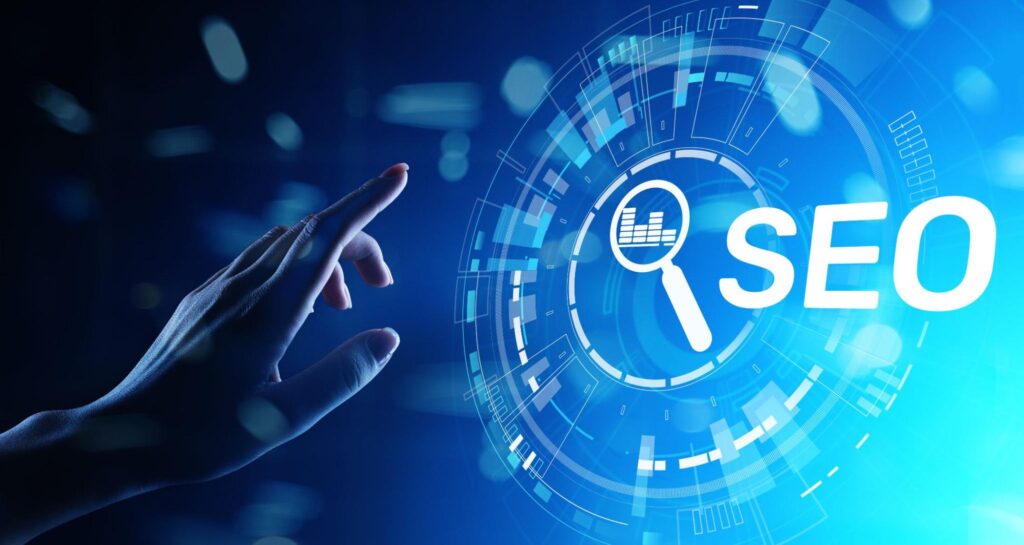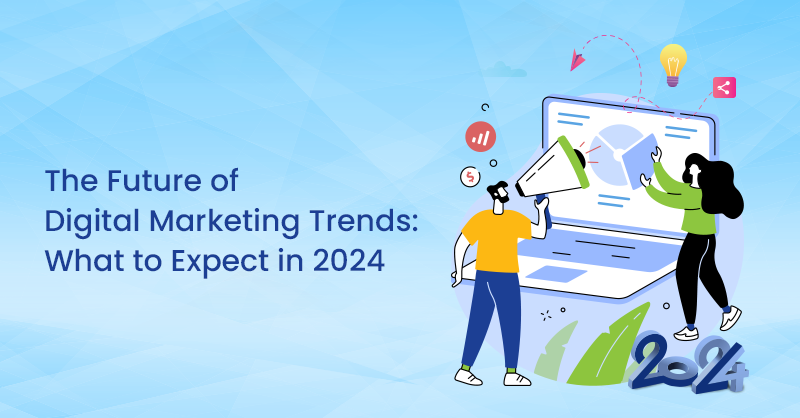In the world of marketing, changes are always present, and preparing for them ahead of time is a must. With the growing impact of technology, adapting to new techniques and practices is inevitable. From the rise of artificial intelligence to the increasing popularity of short-form content, there are certainly a lot of elements that must be carefully analyzed and studied.
That is why we’ve dedicated this article to providing you with expert insight on the latest marketing trends and offering a helpful guide to ensure you’re up-to-date with what is on the horizon for 2024.
Marketing Trends You Cannot Overlook For 2024
Marketing today is way more intricate and advanced than it used to be one or two decades ago. This is all thanks to the immense developments in technology that have allowed for new and innovative approaches to be integrated seamlessly.
To run a successful marketing campaign, businesses nowadays must be all-encompassing and follow strategies that cater to their needs while incorporating current trends. The following list showcases some of the more present marketing trends and practices that will undoubtedly shine through 2024:
Artificial Intelligence (AI) in Marketing
Artificial Intelligence (AI) has transformed the landscape of customer engagement, offering businesses unprecedented tools for personalized interactions. Chatbots, powered by AI, have evolved from basic question-answering interfaces to sophisticated entities capable of understanding and addressing specific customer needs. These chatbots not only enhance efficiency by providing instant responses but also contribute to an elevated customer experience through tailored interactions.
Furthermore, AI's impact extends to automated marketing, where algorithms analyze vast amounts of customer data to identify patterns and predict future trends. This enables businesses to streamline their marketing efforts, targeting audiences more precisely and optimizing the return on their marketing investments. Automation, driven by AI, not only increases efficiency but also allows marketers to focus on strategy and creativity, fostering innovation in campaign approaches.

Source: Shutterstock
Content Marketing
Content marketing has matured beyond the creation of mere textual or visual assets. A strategic approach is now paramount, considering the entire customer journey. Content is crafted with a purpose, addressing the unique needs and preferences of the audience at each stage of their interaction with the brand. The mix of evergreen content, which provides timeless value, and trending content, which resonates with current interests, forms a dynamic strategy that sustains existing audiences and attracts new ones.
Successful content marketing goes beyond mere creation; it involves storytelling that captivates, educates, and resonates with the target audience. It's about understanding the audience's pain points and aspirations and delivering content that solves problems and sparks meaningful connections.
Video Content
The rise of short-form videos, popularized by platforms like TikTok and Instagram Reels, underscores the power of visual storytelling in modern marketing. Businesses are now leveraging these platforms to create content that entertains and authentically connects with their audience. Live streaming takes engagement a step further, offering real-time interaction and behind-the-scenes glimpses, fostering a sense of inclusivity and immediacy.
Video content, in its various forms, has become a versatile tool for conveying brand personality, showcasing products, and building relationships. From product demonstrations to customer testimonials, video content allows businesses to communicate in a more dynamic and engaging manner, resonating with audiences in a way that traditional formats often struggle to achieve.
Email Marketing
Email marketing has evolved from simple newsletters to a highly targeted and personalized communication channel. Data-driven segmentation ensures emails are tailored to individual recipients' interests and behaviours, enhancing the relevance and engagement of the content. Email marketing has evolved beyond delivering promotional content to building trust and authority, incorporating valuable and informative content to meet changing recipient expectations.
Personalized recommendations, derived from customer behaviour and preferences, enhance campaign effectiveness by keeping content relevant and driving conversion. Many businesses have embraced customer service email outsourcing as a strategic approach to ensure consistent and effective communication, streamline operations, and maintain high customer engagement standards. Email marketing is now a dynamic and adaptive strategy that nurtures relationships, provides value and strategically utilizes external support to ensure sustained excellence in customer communication.
Search Engine Optimization (SEO)
Search Engine Optimization (SEO) remains a cornerstone of digital marketing, continually evolving to meet the changing landscape of online search. Voice search optimization, a relatively new frontier, demands a shift in strategy as it requires an understanding of how people naturally phrase their verbal queries. Successful SEO strategies now encompass keyword optimization and a focus on providing a seamless user experience, ensuring fast-loading websites and mobile-friendly designs.
As search engines increasingly prioritize user experience, businesses are compelled to invest in optimizing not just for algorithms but for the satisfaction and convenience of their human audience. This includes creating content that is not only informative and relevant but also presented in a way that enhances user engagement and satisfaction.

Source: Shutterstock
User-generated Content
User-generated content has become a powerful and authentic marketing tool. Beyond simply encouraging customers to leave reviews, businesses are actively building communities where users willingly share their experiences, photos, and creative expressions related to the brand. This not only serves as a form of social proof but also fosters a sense of belonging and shared identity among customers.
Incentivizing user participation goes beyond simple requests for content; it involves creating a culture where customers feel valued and acknowledged. Businesses offer rewards, recognition, or exclusive opportunities for those who contribute, turning user-generated content into a mutually beneficial collaboration between the brand and its community.
Personalization Through Big Data
The era of big data has ushered in a new age of personalization in marketing. By leveraging vast datasets, businesses can go beyond demographic targeting to predict individual customer preferences and behaviour. Predictive analytics, powered by machine learning algorithms, allow for creating highly personalized advertisements and recommendations.
Cross-channel personalization takes this a step further by integrating data from various customer touchpoints. This comprehensive view of the customer journey enables businesses to tailor their interactions across websites, social media, email, and other channels. This not only enhances the customer experience but also increases the effectiveness of marketing efforts by presenting a cohesive and personalized brand image.
Ethical Marketing
In an age where consumers are not just purchasing products but investing in brands and their values, ethical marketing has gained prominence. Beyond showcasing products or services, businesses are actively communicating their commitment to ethical practices, sustainability, and social responsibility. Transparency is at the core of this approach, with brands openly sharing information about their supply chains, manufacturing processes, and environmental initiatives.
Social responsibility campaigns are not merely a marketing tactic but a genuine expression of a brand's values. Whether it's supporting environmental causes, championing social justice, or contributing to community development, businesses are aligning themselves with issues that resonate with their audience. Ethical marketing is not just about attracting customers; it's about building a community of advocates who share the brand's values and ethos.
Key Takeaways
In the dynamic marketing realm, change remains the sole constant. Approaching 2024, technology continues to reshape the marketing landscape, driving the need for new strategies. From the ascent of artificial intelligence to the proliferation of bite-sized content, the marketing world is brimming with elements that demand careful scrutiny and exploration.
Contemporary marketing differs significantly from its historical counterpart, thanks to groundbreaking technological developments that seamlessly incorporate innovation into operational tactics. To succeed in this ever-changing environment, businesses must adopt comprehensive strategies aligned with contemporary trends.
Looking ahead to 2024, artificial intelligence, content marketing, video content, email marketing, SEO, user-generated content, data-driven personalization, and ethical marketing take centre stage. Embracing these trends prepares one to navigate the evolving marketing landscape, ensuring brand success in the future.
If you’re ready to enhance your digital marketing strategy in 2024 and onwards, reach out to TechWyse Internet Marketing today. To schedule an appointment, call (416)-410-7090 or contact us here. Let us take your business to the top!






on
As digital marketing evolves, anticipating trends for 2024 is crucial. Your insights on future strategies like AI-driven personalization and immersive experiences are enlightening. Looking forward to leveraging these trends for our upcoming campaigns!
on
Thank you for your positive feedback. At TechWyse, we strive to provide exceptional digital marketing strategies and online visibility solutions to help businesses grow. Your recognition of our expertise is greatly appreciated. If you have any questions or need further assistance, please do not hesitate to contact us.